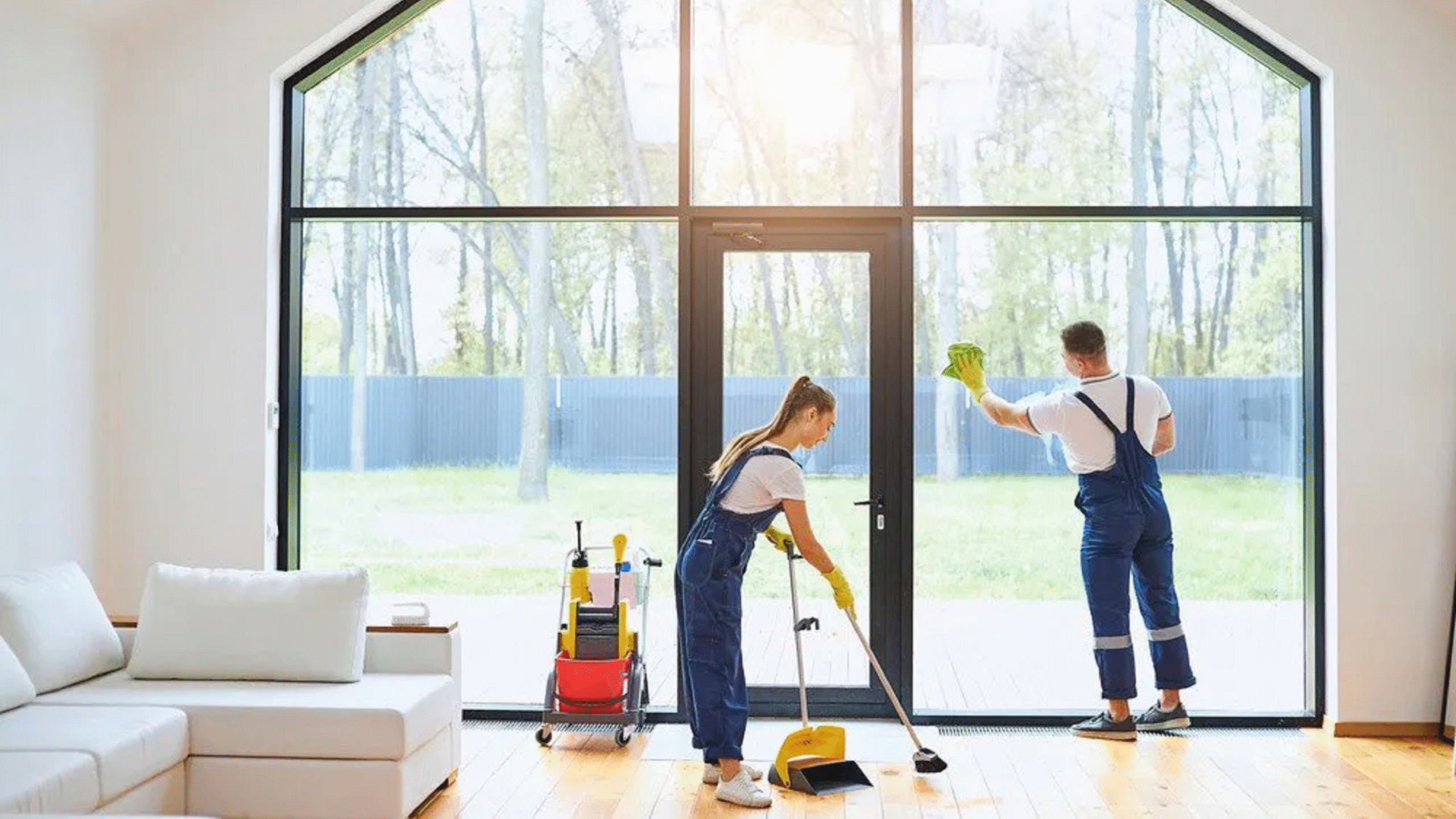
Your home is more than just a place to live — it’s your comfort zone, your investment, and a reflection of who you are. But keeping a home in top shape takes effort, time, and smart planning. Many homeowners struggle with maintenance because they don’t know where to start or how to stay consistent.
This article will walk you through how to maintain your home efficiently — saving you time, money, and unnecessary stress. Whether you’re a new homeowner or have lived in your house for years, these practical tips will help you keep everything running smoothly all year long.
🌟 Why Efficient Home Maintenance Matters
Home maintenance isn’t just about aesthetics — it’s about preventing small problems from becoming costly disasters. A tiny roof leak can turn into a flooded ceiling, or a clogged gutter can damage your foundation. Regular upkeep protects your home’s structure, increases its value, and gives you peace of mind.
Here’s why maintaining your home efficiently is so important:
- Saves money: Preventive care costs far less than major repairs.
- Increases home value: Well-maintained homes attract higher resale prices.
- Improves comfort: Regular maintenance ensures heating, cooling, and plumbing work properly.
- Reduces stress: You avoid sudden breakdowns and emergencies.
- Keeps your family safe: Proper maintenance helps prevent electrical fires, mold, and other hazards.
🧰 Step-by-Step Guide to Efficient Home Maintenance
Maintaining your home doesn’t have to feel overwhelming. The key is to create a routine, stick to it, and focus on one area at a time. Let’s go through a few core maintenance steps that make a huge difference.
1. 🏠 Create a Home Maintenance Checklist
Start by creating a monthly, seasonal, and annual checklist. This keeps you organized and ensures you don’t miss important tasks.
Monthly Tasks:
- Inspect smoke and carbon monoxide detectors.
- Check for leaks under sinks and around toilets.
- Clean kitchen vent filters.
- Replace HVAC filters if needed.
- Test lights and outlets.
Seasonal Tasks:
- Spring: Clean gutters, check roof shingles, and test your sump pump.
- Summer: Inspect air conditioning, trim trees, and wash windows.
- Fall: Service the heating system, clean fireplace chimneys, and inspect weather stripping.
- Winter: Check for drafts, insulate pipes, and clear snow from walkways.
Annual Tasks:
- Deep clean carpets and curtains.
- Repaint or touch up walls.
- Inspect the attic and basement for moisture or pests.
- Service large appliances like the water heater and washing machine.
✅ Tip: Keep your checklist in a digital format or app to set reminders.
2. 🧽 Keep Up with Regular Cleaning
A clean home not only looks good but also stays in better condition. Dust and grime can wear down surfaces, while clutter can hide maintenance issues.
Efficient Cleaning Tips:
- Dedicate 10–15 minutes daily to light cleaning.
- Declutter one room each week to stay organized.
- Use eco-friendly cleaning solutions to protect your family and environment.
- Clean from top to bottom — ceiling fans, shelves, then floors.
Keeping up with cleaning means you’ll spot potential problems early — like water stains, mold growth, or insect activity.
3. ⚙️ Maintain Your Major Systems
Your home’s major systems — HVAC, plumbing, and electrical — need regular care to keep everything functioning efficiently.
HVAC Maintenance:
- Change filters every 1–3 months.
- Schedule professional service twice a year.
- Keep vents and ducts clear of dust.
Plumbing Maintenance:
- Check for leaks and drips.
- Clean out sink traps and shower drains.
- Insulate exposed pipes before winter.
Electrical Maintenance:
- Inspect outlets for signs of burning or damage.
- Avoid overloading circuits.
- Test your circuit breakers annually.
4. 🪴 Don’t Forget Outdoor Maintenance
Your yard, roof, and exterior are just as important as your interior spaces. Neglecting outdoor maintenance can lead to water damage, pests, or foundation issues.
Outdoor Checklist:
- Clean gutters and downspouts twice a year.
- Inspect the roof for missing shingles or cracks.
- Pressure wash sidewalks, decks, and siding.
- Keep trees trimmed away from the house.
- Seal any cracks in driveways or exterior walls.
🌿 Bonus Tip: Regular lawn maintenance not only boosts curb appeal but also prevents pests from getting too close to your home.
5. 💡 Embrace Smart Home Technology
Modern homeowners can use smart devices to make home maintenance easier and more efficient.
Here’s how smart technology helps:
- Smart thermostats optimize heating and cooling, saving energy.
- Leak detectors alert you to water issues before they cause major damage.
- Security cameras and smart locks keep your property safe.
- Automated reminders can track filter changes, cleaning schedules, or appliance servicing.
Using technology helps you stay proactive instead of reactive.
6. 🧱 Perform Energy Efficiency Upgrades
An energy-efficient home saves you money every month while reducing your environmental footprint. Here are some quick upgrades that make a big impact:
- Replace incandescent bulbs with LED lights.
- Seal air leaks around windows and doors.
- Add insulation to your attic and walls.
- Install programmable thermostats.
- Upgrade to energy-efficient appliances.
💡 Fun fact: Energy-efficient homes can lower utility bills by up to 30%.
7. 📅 Schedule Professional Inspections
Some tasks require a trained eye. Hiring professionals for periodic inspections keeps your home safe and running smoothly.
Recommended Professional Checks:
- Annual HVAC inspection and tune-up.
- Roof and gutter inspection every 1–2 years.
- Electrical safety inspection every 5 years.
- Plumbing system check every 2 years.
While it costs upfront, these inspections can help prevent much larger repair bills later on.
8. 🧠 Stay Organized with a Home Maintenance Binder
Keeping track of warranties, receipts, and service records is key to efficient maintenance. Create a home maintenance binder or digital folder that includes:
- Appliance manuals and warranties.
- Receipts from contractors and repairs.
- Home improvement project notes.
- Maintenance checklists and inspection reports.
This organization helps when you sell your home or need to claim a warranty.
💬 Common Mistakes Homeowners Should Avoid
Even the most careful homeowners can make simple mistakes that cause bigger issues later. Here are some to watch out for:
- Ignoring small leaks or cracks.
- Forgetting to change HVAC filters.
- Skipping regular roof and gutter cleaning.
- Using too many harsh chemicals when cleaning.
- Not having a set schedule for inspections.
By avoiding these mistakes, you’ll save yourself time, stress, and money.
✅ Conclusion
Maintaining your home efficiently is all about consistency, organization, and awareness. With a proper maintenance plan, smart technology, and timely inspections, you can keep your home in great shape year-round.
Remember — your home doesn’t need perfection; it just needs attention. By dedicating a little time each week, you’ll prevent major repairs, save money, and enjoy a safe, comfortable living space for years to come.
Your home takes care of you every day — it’s time you take care of it too!
🧾 FAQs About Home Maintenance
1. How often should I do home maintenance checks?
You should perform quick checks monthly and detailed inspections seasonally. Schedule professional inspections at least once a year for major systems like HVAC, plumbing, and roofing.
2. What’s the most important part of home maintenance?
Preventive maintenance is key — addressing small problems like leaks, cracks, or strange noises early prevents expensive repairs later.
3. How can I make home maintenance easier?
Use checklists, smart home devices, and set calendar reminders. Breaking tasks into smaller weekly routines makes it more manageable.
4. Is hiring professionals worth it for home inspections?
Yes. Professional inspections identify hidden issues before they become costly. They’re especially useful for HVAC, roofing, and electrical systems.
5. What are some budget-friendly home maintenance tips?
DIY small repairs, clean regularly, use energy-efficient upgrades, and buy maintenance supplies in bulk. Preventive care always costs less than major fixes.














